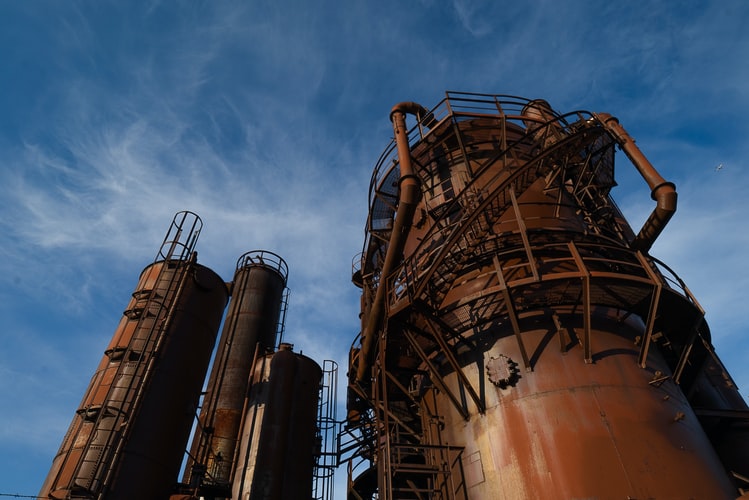As the unprocessed oil gets pumped from the ground, it becomes known as petroleum. From there, oil refinery workers will process and refine it so that it becomes a more useful product in the end.
In fact, you can get a variety of valuable products from it that include diesel, heating oil, gasoline and kerosene. To refine oil, the process means that you have to boil a thick liquid, which lets the gases release to the air. In addition, this helps to separate the chemicals. In general, an oil refinery will be a large complex that has many pipes and transports the fluids in between the different stages in the process.
Variety of Specialties
You have several specialties that you could identify in this profession that include pipefitters, millwrights, electricians, boiler makers, engineers and welders. This job can turn somewhat dangerous, but across the globe, countries have a dependence on oil, which means the job must be done. Some of the potential dangers include the fact that petroleum can be extraordinarily flammable, and this has been known to cause an explosion from time to time. People have lost their lives as oil refinery workers. However, these are the people who control and operate the different processing and refining units. They will also have a responsibility to repair and maintain all the equipment and control how the system pumps the oil. Through this process, the oil can be regulated and directed into specific pipelines that will help in the process of refining it.
The Secret Risk
People are oftentimes aware of the danger that comes with these plants from fires and explosions that can light up the sky. What they don’t realize is how they may be subject to another lesser known risk. This risk is known as asbestos exposure, and while it might not be fatal right away, the damaging effects can take their toll.

In fact, asbestos-based exposure is thought to take decades before it manifests as a real danger. Before these toxic fibers were thought to be dangerous and to cause mesothelioma, they were often used as insulation for the equipment that would run at high temperatures. It was highly common at the different facilities.

Exposure to the Different Asbestos-based Products
One of the most common ways that oil refinery workers would be exposed was if they came into close contact with the thermal insulation. In fact, asbestos-based products were used here because of how this mineral resists fire and heat. It was common practice to use these materials between the 1930s and the 1970s. This was especially because of how oil refineries would often have highly flammable materials that could be dangerous. Because of this, they had to insulated with fire retardants, and they did this with asbestos-based products. These processes that took place inside of an oil refinery would often take place at a much higher temperature and they’d use boilers, pipelines, tanks, reactors, ovens, furnaces and heat exchangers.
Unfortunately, some of the refineries built before the 1970s would often contain these toxic fibers. This has commonly been discovered around pipes, distillation columns and conduits. Not only do asbestos-based products like insulation get used in the equipment for an oil refinery, it has also been used for metal-jacket gaskets, sealants and sheets. Unfortunately, the maintenance workers would oftentimes come into contact with some of these fibers if they were handling a damaged material.

Exposure in the Profession
It doesn’t necessarily matter what occupation someone has in this field, workers will often face exposure to the chemicals as a result. The involvement in the handling of the equipment and the process that happens with refining the crude oil put them into contact with it. What they have sometimes used it protective clothing to keep them from inhaling these dangerous fibers that get released into the air.
When you go to refine the oil, it must be boiled because this separates some of the chemicals and releases the gases. This boiling process is a large part of the reason that they have used asbestos-based materials in the equipment, parts and even the protective gear. Most often, this toxic substance was used in places that had a high risk of fire or heat.

On June 25, 2012, Ginger Hall, a refinery worker’s spouse, filed a cancer lawsuit that brought 11 companies to the stage. These were places where her husband had worked and been exposed to asbestos-based products. The companies included Citgo, ExxonMobil, Chevron USA, DuPont, Oxy USA and Unocal Corp.

Based on the lawsuit filed, Hall suffered from what was known as take-home exposure. Her husband brought home clothing covered in the dust, which is where she developed cancer from. Hall now seeks re-compensation for her medical expenses and lost wages as a result of contracting the disease.

